Adopting smart manufacturing technologies and processes can be a transformative step for small- and medium-sized manufacturers (SMMs). The dilemma is that most SMMs we talk with are overwhelmed by the perception that smart manufacturing technologies are too expensive, difficult and disruptive to adopt, and beyond the skill level of their production employees to use; at the same time, those manufacturers are very concerned that if they don’t innovate, they will be left behind or driven out of business.
It is especially important that California’s SMMs do not miss out on the many advantages of adopting smart manufacturing technologies. Those advantages include:
- Achieving higher efficiency, lower costs and faster production cycles
- Improving product quality and reducing defects
- Being more agile, allowing for quick shifts in market demands and trends
- Providing superior customer service and customization
- Differentiating their brand in a competitive market, enhancing customer loyalty and business growth
- Positioning themselves as leaders in sustainability and innovation, which can attract new customers and partners
To address the many concerns expressed by SMMs about the complexities and costs often associated with the adoption of smart manufacturing technologies and processes, we’ve prepared a practical and cost-effective initial two-step approach that will hopefully allay those concerns.
Phase 1: Assess Current Capabilities and Needs
- Conduct a Readiness Assessment: Evaluate the current state of operations, identifying key pain points and areas that could benefit from automation or digitization.
- Questions to ask: Where are we losing efficiency? What data are we currently tracking, and what could we track to make better decisions?
- Set Clear Objectives: Define specific goals for adopting smart manufacturing (e.g., reducing downtime, improving production speed, increasing quality or lowering costs).
To assist SMMs in the adoption of smart manufacturing technologies and processes, the Smart Manufacturing Center at El Camino College currently offers no-cost readiness assessments conducted by industry experts who can evaluate an organization’s current operations and help define the business measurements that can be improved by enhanced data collection, data analysis and decision making.
Phase 2: Prioritize Low-Cost, High-Impact Technologies
Focus on technologies that deliver quick wins and incremental improvements.
- Basic Internet of Things (IoT) Sensors: Start with simple, inexpensive sensors to monitor equipment health (e.g., vibration, temperature, humidity). This can provide real-time feedback to improve maintenance scheduling.
- Example: Predictive maintenance tools that alert to potential failures before they occur, reducing downtime.
- Data Collection and Visualization: Implement basic systems for collecting and visualizing data, even if it’s just simple spreadsheets or basic dashboard tools. This helps build a data-driven culture.
- Example: Use open-source or low-cost platforms (like Microsoft Power BI or Google Data Studio) to visualize production metrics.
- Robotics/Automation in Critical Areas: If the budget allows, invest in affordable, adaptable robotics for repetitive or hazardous tasks. Look for collaborative robots (cobots) that can work alongside human operators.
- Example: A simple pick-and-place robot for assembly or packaging tasks.
By following these initial steps, small- and medium-sized manufacturers can begin to transition into smart manufacturing without overwhelming their budgets or operations.
In addition to an initial assessment, the Smart Manufacturing Center can provide no-cost consultation services for the implementation of smart manufacturing technologies. For smart manufacturing assessments and technical assistance, we partner with the following organizations:
Clean Energy Smart Manufacturing Innovation Institute (CESMII) at UCLA
CESMII is the national Public Private Partnership (PPP) sponsored by the Department of Energy to accelerate the adoption of smart manufacturing and sustain U.S. competitiveness. The trust in CESMII’s PPP neutrality and objectivity and its goal of smart manufacturing democratization and adoption is overseen at its headquarters located at UCLA, in Los Angeles, California, where CESMII and the DOE act in concert on behalf of the manufacturing sector. Learn more about CESMII.
California Manufacturing Technology Consulting (CMTC)
Established in 1992, California Manufacturing Technology Consulting® (CMTC) is a private nonprofit organization that provides technical assistance, workforce development and consulting services to small- and medium-sized manufacturers throughout the state of California. Learn more at the CMTC website.
For more information about the services offered by the Smart Manufacturing Center at El Camino College, please contact:
Jose Anaya
Dean, Community Advancement
El Camino College
[email protected]
(310) 225-8265

